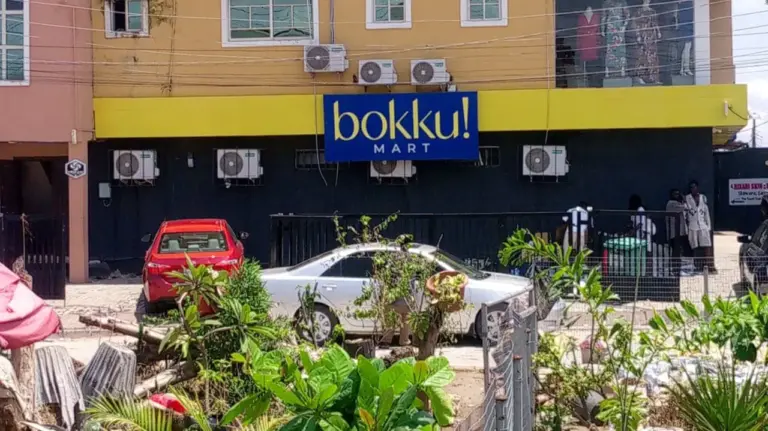When a 30-second promotional video spiraled into one of Nigeria’s loudest social media storms of the month, retail brand Bokku Mart found itself in the center of a national debate on ethnicity, branding, and the growing power of online accountability.
The controversy began when a short advert posted to the supermarket’s official social media pages featured a content creator known as Defolah using the phrase “No Omo Igbo can cheat me” while promoting the affordability of the store’s products. What was likely intended as light humor quickly morphed into outrage, with many Nigerians condemning the ad as ethnically insensitive toward people of South-East origin.
By Wednesday morning, the phrase “Omo Igbo” had flooded X (formerly Twitter), sparking heated conversations about stereotypes, representation, and the persistent casualization of ethnic slurs in marketing. Within hours, boycott calls against Bokku Mart began trending, forcing the company to pull the ad and respond publicly.
Bokku Mart Responds: ‘It Does Not Reflect Who We Are’
In a statement released on Friday, Bokku Mart expressed “deep regret” over the incident, calling the language used in the video “offensive and hurtful.” The company clarified that the controversial content had been produced by an external influencer and published through a third-party media agency — without internal vetting.
“The language used in the video was unacceptable and deeply misaligned with Bokku’s values,” the statement read. “While the content originated from an external influencer and was published by a third-party firm without prior review, we take full responsibility for its appearance on our platforms.”
The retail brand further assured customers that it has strengthened its content approval systems and tightened oversight over external partners to prevent a repeat of such lapses.
“We have since reviewed and reinforced our internal processes to ensure this never happens again,” the company said. “Bokku Mart stands for unity, inclusivity, and respect for all Nigerians.”
A Broader Reflection: Brands and the Power of Words
Marketing experts say the Bokku Mart saga highlights the increasing scrutiny Nigerian brands face in a socially aware digital era. As audiences grow more vocal about representation and respect, even a few careless words can ignite nationwide debates.
“Consumers no longer tolerate lazy stereotypes,” notes brand analyst Tunde Ajayi, adding that social media has transformed audiences into watchdogs. “Brands must now build not only trust in their products but also integrity in their messaging.”
The incident has reignited conversations about corporate cultural literacy — the understanding that marketing in a diverse country like Nigeria demands sensitivity, nuance, and empathy.
An Apology, and a Teachable Moment
Following Bokku Mart’s statement, Defolah, the influencer at the center of the storm, also issued a public apology on her social media pages, expressing remorse for the language used and acknowledging that it caused unintended harm.
Her apology, however, has done little to quiet the ongoing conversation about influencer responsibility. Critics argue that creators must educate themselves about Nigeria’s cultural diversity and avoid perpetuating divisive narratives, especially in paid collaborations.
Turning Crisis into Course Correction
Despite the backlash, some communications experts view Bokku Mart’s swift acknowledgment and commitment to corrective action as a sign of corporate maturity. By taking responsibility instead of shifting blame, the brand may yet rebuild trust and even emerge stronger.
The company ended its statement on a note of unity:
“Bokku Mart is a proudly Nigerian company built on love for our people and communities. We celebrate our nation’s rich diversity and stand firmly against all forms of discrimination.”
Beyond the Backlash
The “Omo Igbo” controversy is more than a PR crisis — it’s a wake-up call for both businesses and influencers in Nigeria’s fast-evolving digital marketplace. As brand narratives increasingly shape public sentiment, authenticity and inclusivity are no longer optional; they’re the currency of credibility.
In the end, Bokku Mart’s stumble may well become a national reminder that in modern marketing, the true test of a brand isn’t just how well it sells — but how respectfully it speaks.

